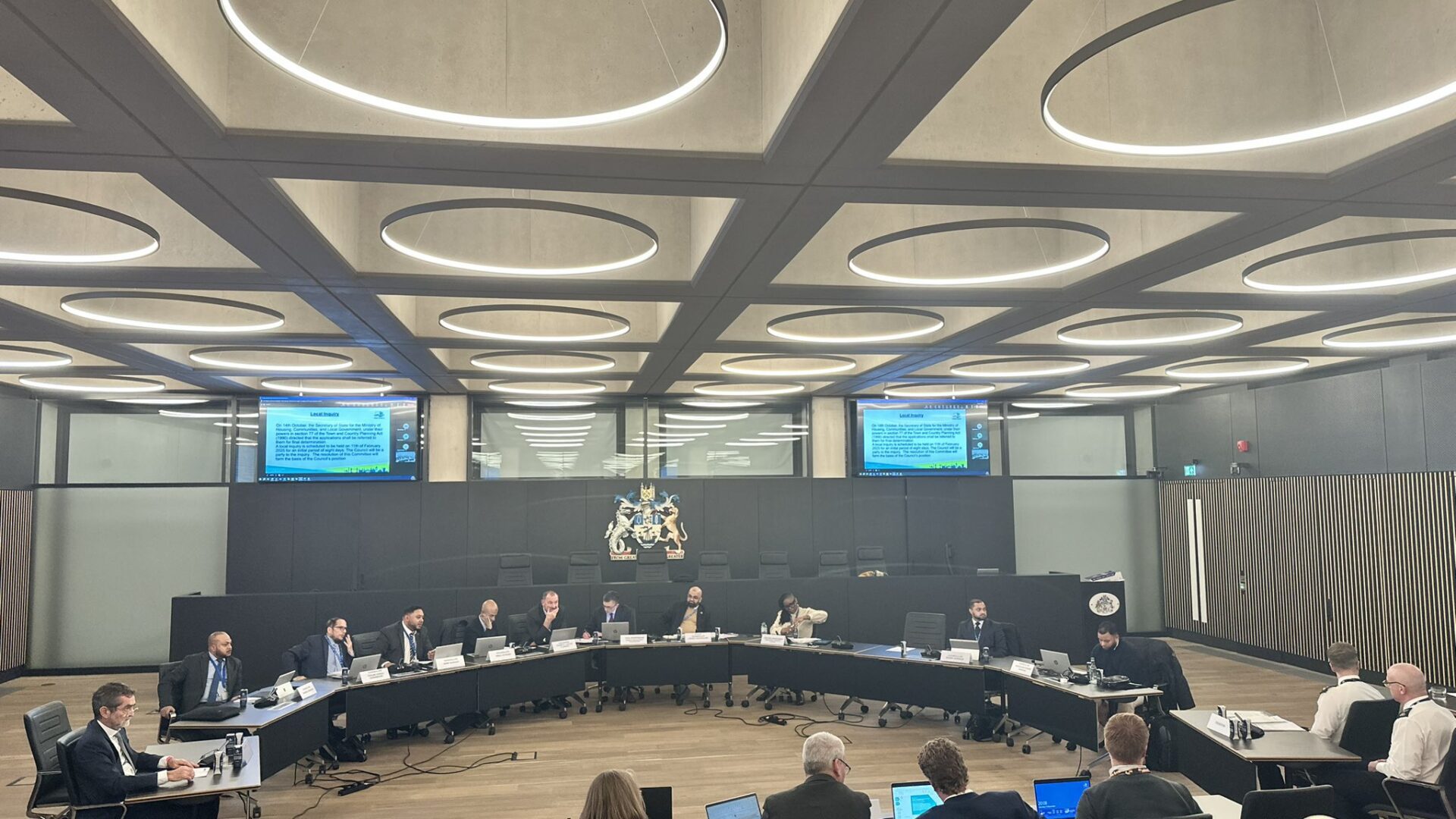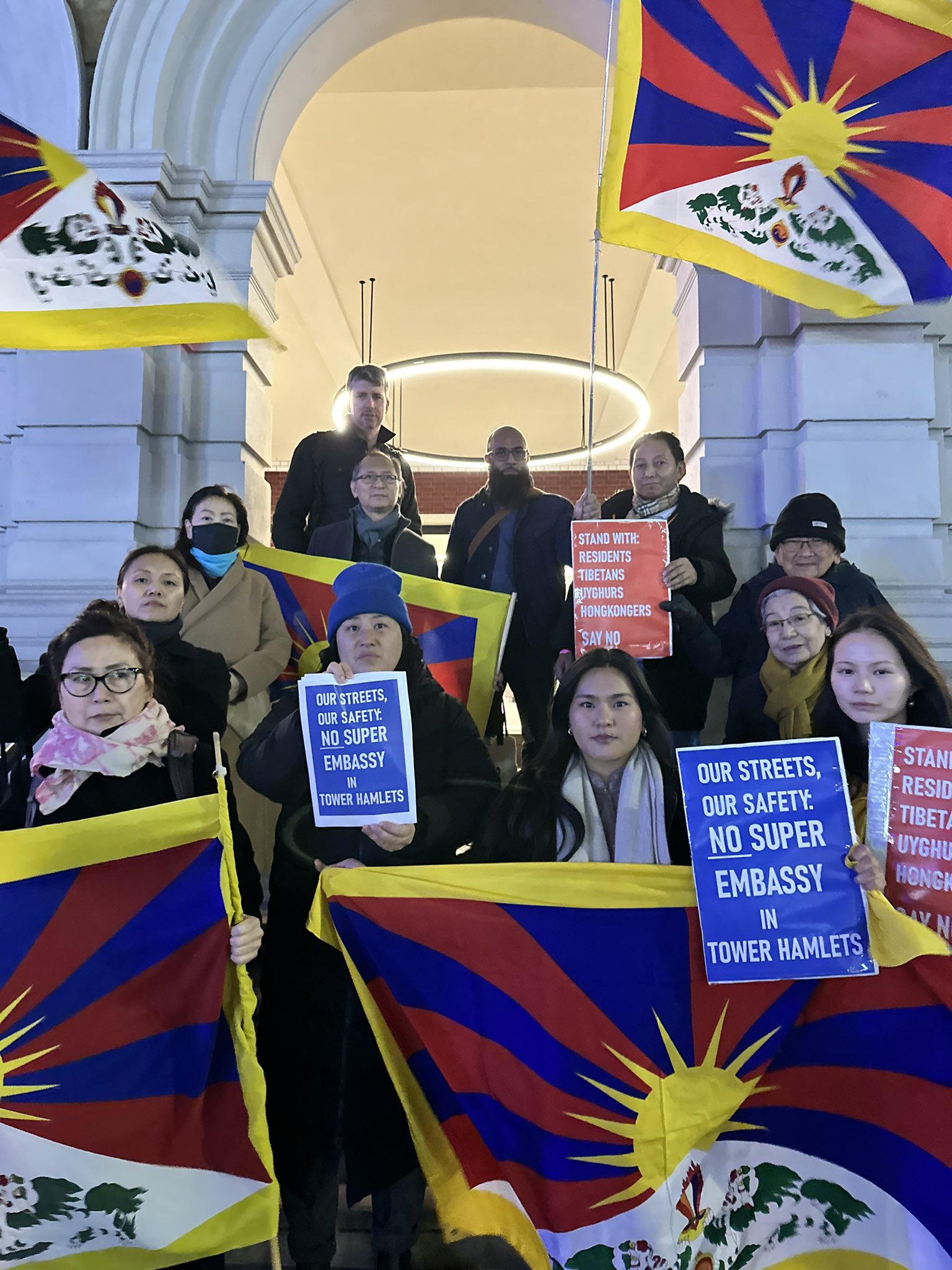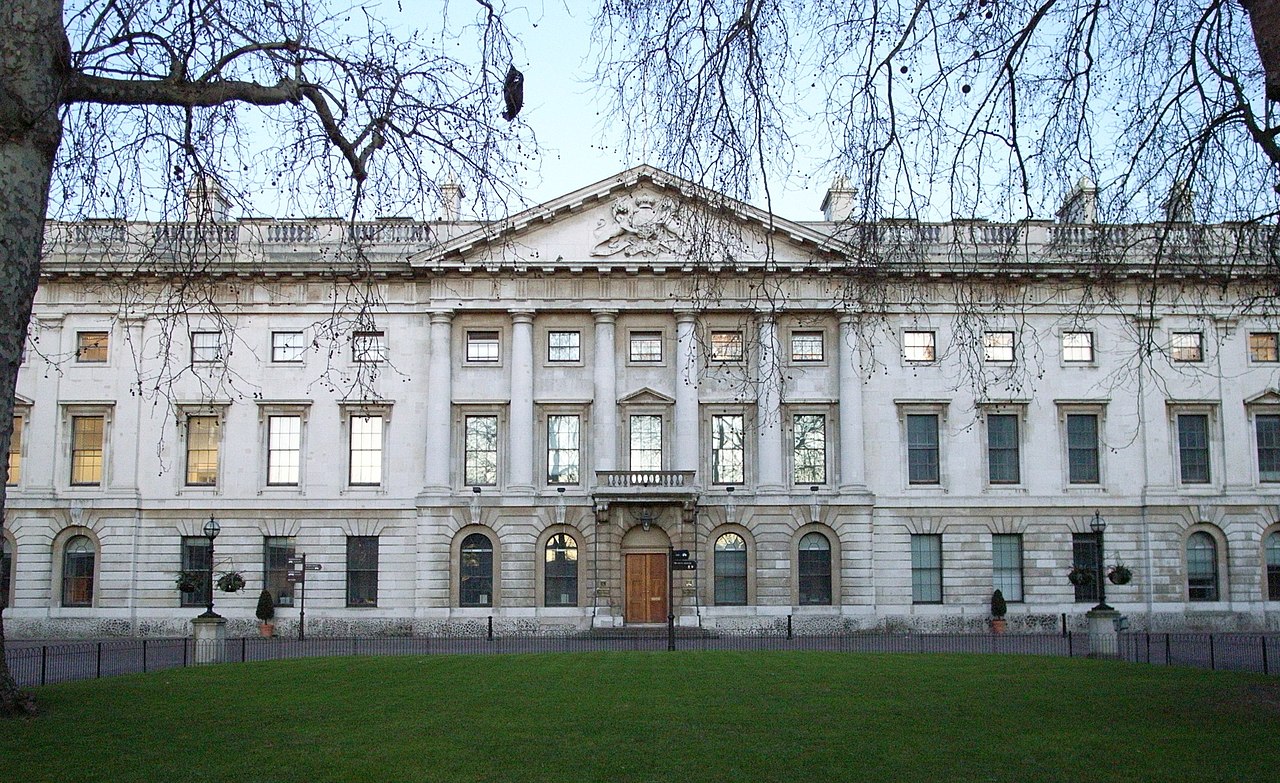
Tower Hamlets Council again unanimously rejects Chinese Embassy
Locals and Tibetans made their objections to the plan clear; the final decision now rests with the UK government
For a second time, Tower Hamlets Council has unanimously voted against China’s plans for a super embassy in the London borough.
After hearing from residents and the Metropolitan Police, and taking letters of objection into consideration, the councilors at the Strategic Development Committee meeting rejected the plans. The final decision rests with the UK government.
Under the Chinese government’s proposal, the historic Royal Mint Court, a collection of historic listed buildings and offices, would become China’s new UK embassy, with other buildings converted into cultural spaces and accommodation for embassy staff and their families. At 700,000 square feet, it would be China’s largest embassy in Europe.
The proposal was voted down by Tower Hamlets Council in December 2022, with 51 letters of objection from residents. This time, the Council received 273 letters of objection. One of those letters was a joint communication from Free Tibet and the Tibet Community in Britain.
The Strategic Development Committee meeting began at 6:30pm on Monday, with a presentation by the applicants and equal time allocated for those for and against the proposal to speak. Local residents watched from the gallery alongside members of the Tibetan community, some of whom had held a vigil outside the venue before the meeting.

Tibetans and Tower Hamlets locals gather outside Tower Hamlets town hall
The impact on traffic, tourism and public security as a result of daily operations and protests were some of the key reasons in the deliberations.
The Chair of the Royal Mint Estate resident’s group was not given time to speak against the proposal but his prepared remarks were read out by another local resident Sue Hughes, who was also present to see the plans rejected in 2022. The statement decried the lack of representation by locals directly affected by the plans and that the huge embassy complex, nine metres away from the flats of local residents, would dominate the estate.
Councillor Peter Golds raised the recent revelations that the Chinese government had directly tried to influence the process and that this could explain the 264 letters that Tower Hamlets council received in support of the proposal, as there appeared to be little support among residents for it. He ended his speaking slot by comparing the Tower of London to the iconic Notre Dame, and asked the room whether Paris would permit a super embassy so close to the recently restored cathedral. He finished by urging the council, hearing the embassy application for a second time in two years to reject it, saying “put it out of its misery and put it somewhere else.”
Those objecting to the proposal also noted that the proposal was identical to the one China made, and which was rejected, in 2022, and that no appeal was made by China following the rejection.

The Royal Mint building, site of the proposed new embassy, credit Steve Cadman
Although China’s human rights record was not a material consideration for whether the embassy plan should go ahead. Nevertheless,events in Tibet and other places under Chinese governance affect events in the UK, which was noted by Jason Chao from Hongkongers in Britain. He raised the issue of transnational repression and the safety of communities such as Hongkongers, Uyghurs and Tibetans in the area should the embassy complex go ahead.
Likewise, two Metropolitan Police representatives who were present noted that there had been 47 planned and spontaneous protests at the current Chinese embassy over the past year. They added that anything more than a small protest would most likely spill out into the road.
When the unanimous vote came against the embassy application, there was audible cheering and applause from locals at the venue
Although Tower Hamlets Council has rejected the application, the final decision will sit with the UK government, which called in the application in October. An inquiry, lasting eight days, will commence on 11 February 2025. A final decision is expected before May 2025.
This decision appears to have followed the Chinese government contacting the UK directly about the matter. At a bilateral meeting with Xi Jinping during the G20 summit in Rio de Janeiro last month, Prime Minister Keir Starmer said to Xi “You raised the Chinese Embassy building in London when we spoke on the telephone, and we have since taken action by calling in that application.”

